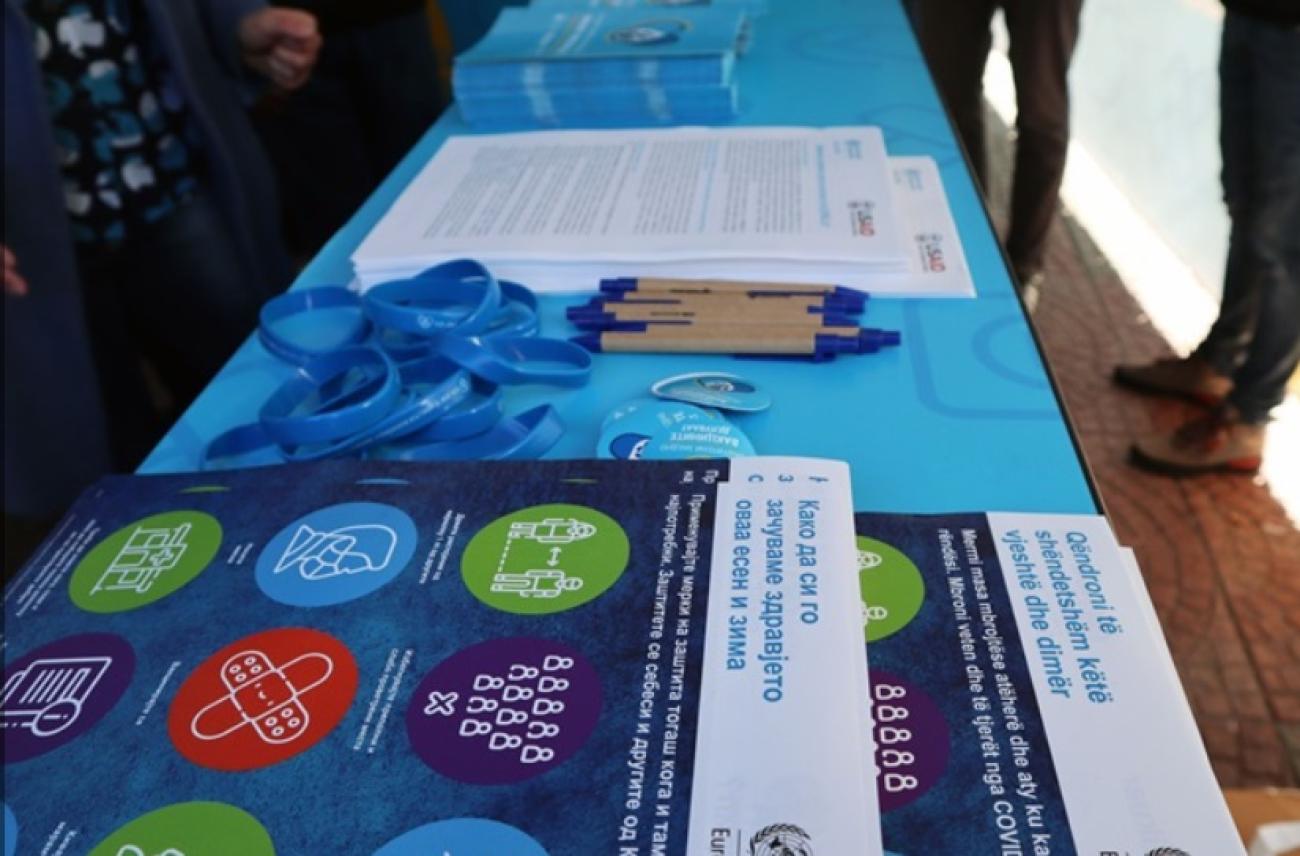What does it take to encourage vulnerable communities in North Macedonia to get vaccinated against COVID-19 and seasonal influenza, or to ensure that their children get the routine childhood vaccines they need to be protected from life-threatening diseases?
The answer is many things. But one thing is certain – North Macedonia’s health authorities want to make sure that access to information and vaccination is as easy as possible, so no one is left behind as they prepare for winter and concerns about COVID-19 and influenza surge.
And so, this October, a caravan travelled across the country, reaching 24 communities in cities and villages. These included people living in remote areas and vulnerable groups, such as older people.
Under the slogan “Protected Together – Vaccines Work”, the information and vaccination caravan brought information about seasonal influenza, COVID-19 and all routine childhood vaccines and offered on-the-spot vaccination against COVID-19.
Organizations behind this initiative included North Macedonia’s Ministry of Health, WHO and UNICEF (United Nations Children's Fund) in North Macedonia, with support from the United States Agency for International Development (USAID).
The caravan is a sequel of a similar event that took place in April this year, when a caravan brought COVID-19 vaccines and information related to COVID-19 to 14 communities.
“The first caravan was a success, so we wanted to build on this,” said Dr Anne Johansen, Special Representative to North Macedonia and Head of the WHO Country Office in North Macedonia. “We are not done with COVID-19 yet, and COVID-19 vaccination uptake is still relatively low in North Macedonia. To date, only 40% of the population has completed the primary COVID-19 vaccine series.”
“COVID-19, and influenza on top of that, is worrying,” added Johansen. “We must do everything it takes to protect the most vulnerable and convey, again and again, ‘if you are in a group at risk of COVID-19 and influenza, please get vaccinated’. Obviously, keeping up with measures, like cleaning hands regularly or staying away when unwell with respiratory illness, is also important.”


